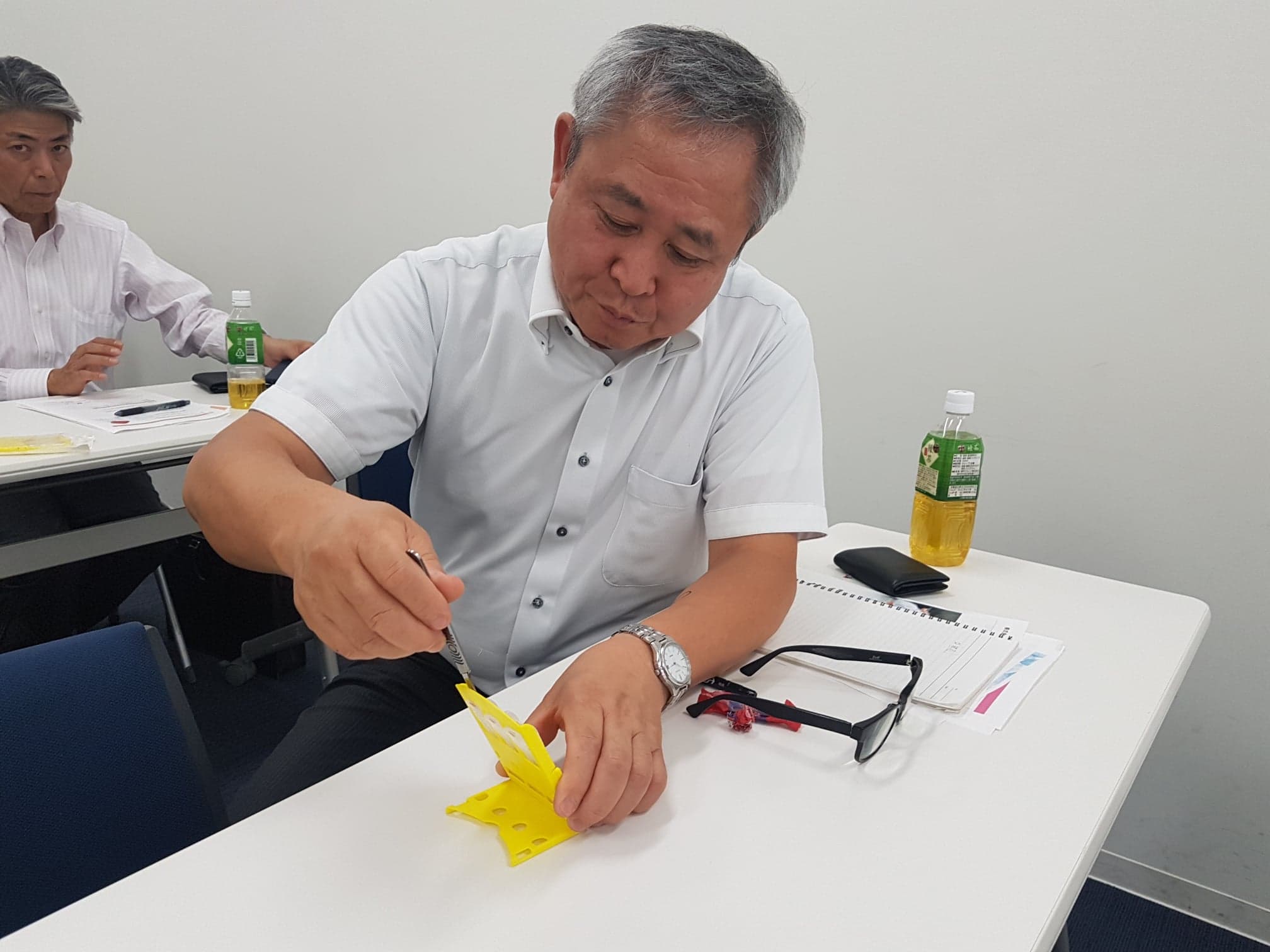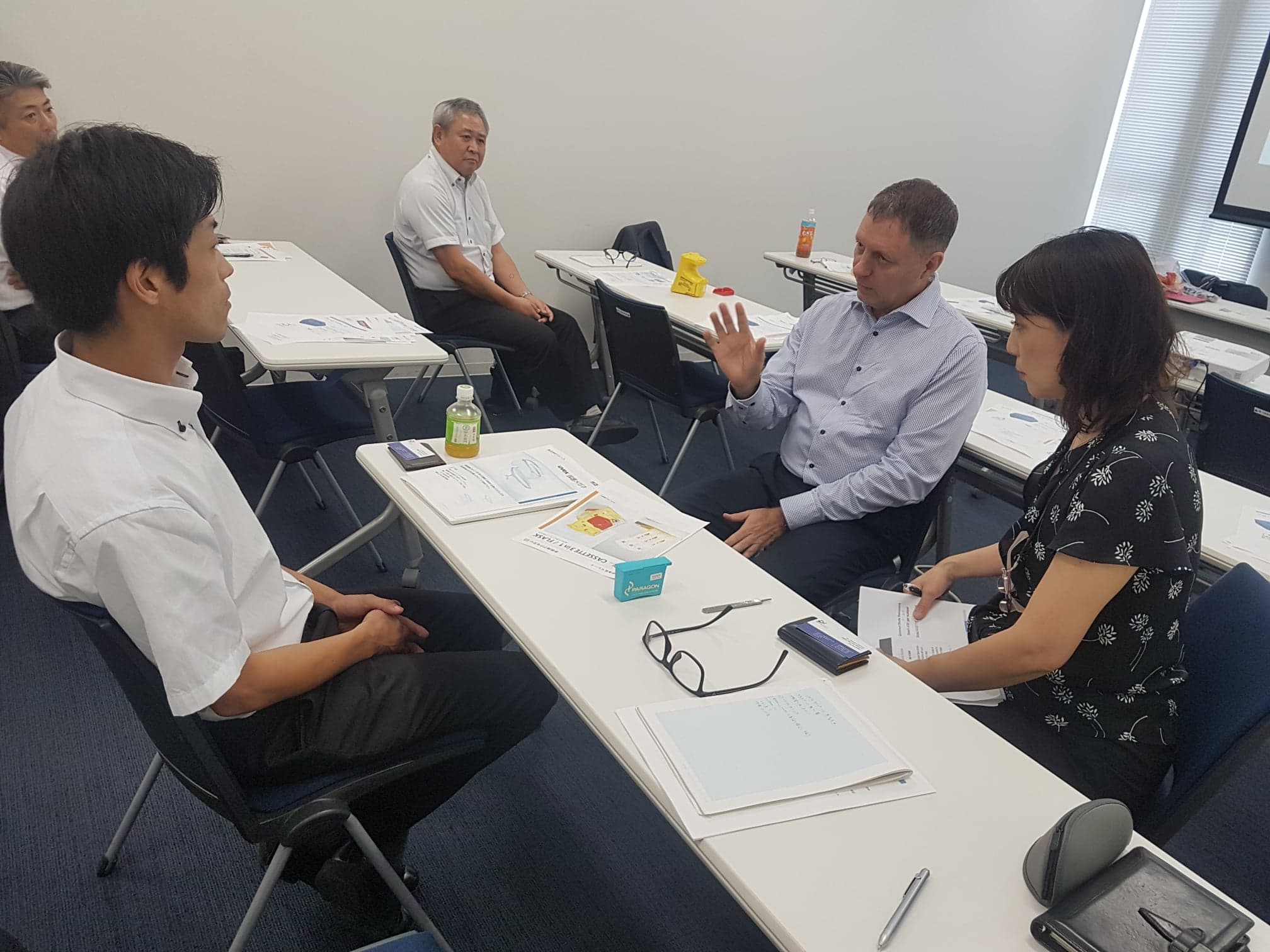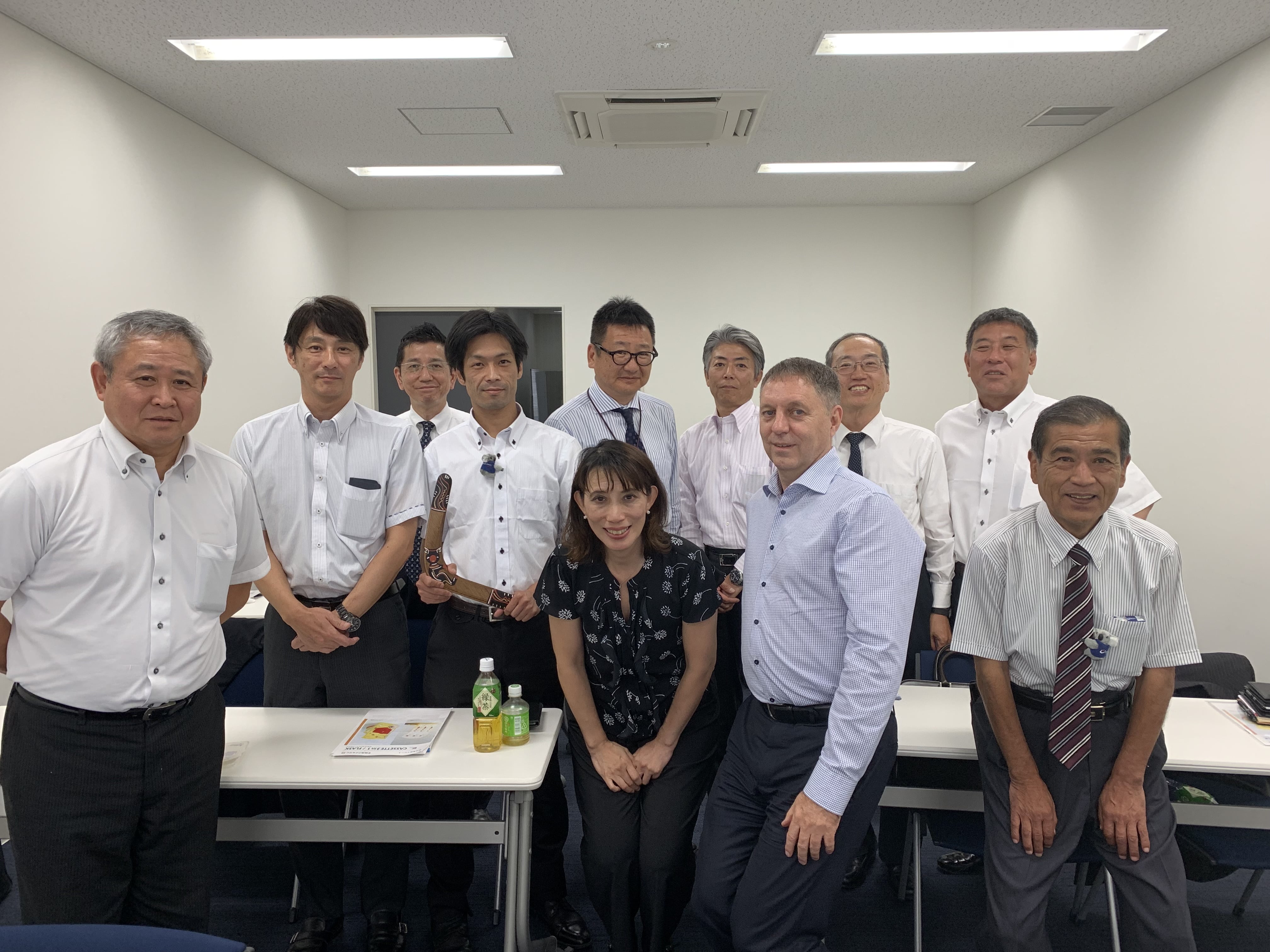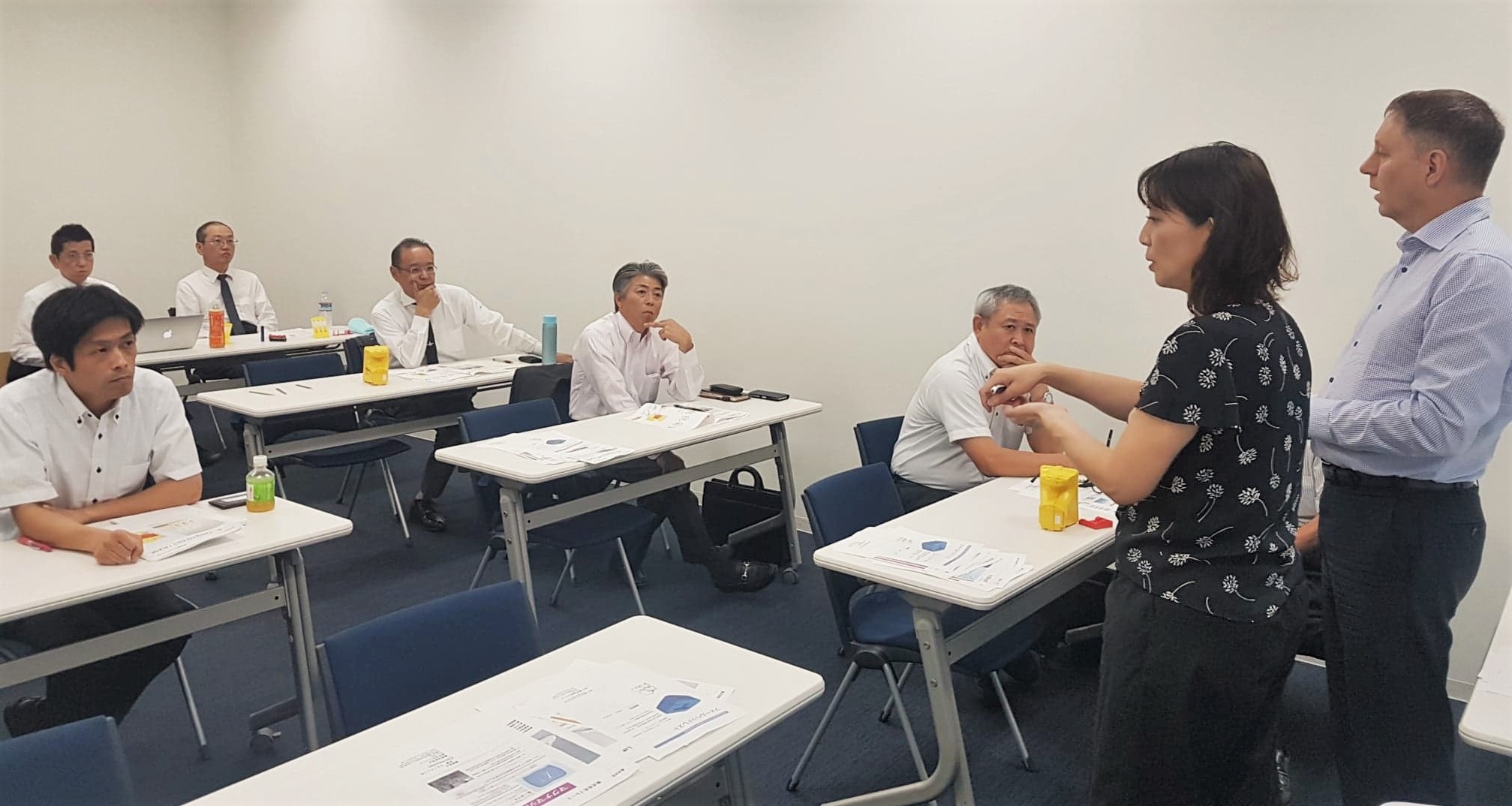Earlier in July, Qlicksmart had the privilege to conduct a sales workshop with Relate Co. (Japanese distributor)’s sales team and dealers in Japan. This workshop session was the first test of a newly designed program, based on feedback from distributors, customers, and market research. We wanted to share some of the insights that we learned from the sales workshop activities and from the participants.
Trying out products puts you in the customer’s shoes
Avoid preaching from a brochure! After trying out the products, participants pretended that they were a customer, and were able to better consider what comments or questions a customer would have during a trial. We made a list of the features of the BladeFLASK and BladeCASSETTE which participants noted were unique and/or practical while they were trying out the products.

It is valuable to practice using other methods
In Qlicksmart’s experience, the major “competitor” to our scalpel blade removers is bad habits; using fingers, artery forceps, or needle holders to remove scalpel blades. While these practices are still occurring in many workplaces, safety scalpels and cheap blade detachers are on the market. During the workshop, Dr Sinnott acted out a surgery scene with a safety scalpel, demonstrating how “safety” scalpels can be a risk to the patient’s safety and why surgeons prefer standard scalpel handles. The sales reps and dealers also attempted to remove a scalpel blade safely using a blade detacher device. This exercise helped to define the advantages of a single-handed device like the BladeFLASK, which was engineered to be easy to use.
Role-playing can help sharpen face-to-face pitches
Speaking with nurses/surgical techs/doctors may be intimidating for new sales reps or experienced sales reps with new portfolios. Practising the pitch with someone who provides feedback can help to polish the message and make it second-nature. During the role-playing exercise, Dr Sinnott faced new questions from a “customer” and together with participants, came up with the solution for the “customer”.

Hospitals may have different kinds of buying processes
After lunch, we had a brainstorming session around understanding the hospital’s buying process in order to track potential sales. While some dealers worked in hospitals and clinics where the Unit Nurse Manager or clinician made a decision on which products to use, other dealers mentioned that the purchasing department or administration management had the final say. Different buying processes require different messages; for example if the purchasing department decides, they might be more price-conscious. Finding out what the buying process is in your market could be the difference between an unsuccessful conversion and a sale.
“It is important to talk to the person with the power”
After investigating the purchasing processes, one participant highlighted the importance of speaking with the decision makers after identifying who they are. Many participants shared that the most critical part of selling Qlicksmart devices was getting the invitation to talk to hospital staff. With the tightening rules around who can visit hospital staff, finding an “in” can be a challenge. Some suggestions for initiating contact were attending tradeshow exhibitions or having references from reputable hospitals using the products.
We can learn a lot from fellow sales reps
The Qlicksmart team has gained a lot of experience during our 20+ years, but we continue to learn from sales reps and distributors every day. While it’s great to refine a sales pitch that works for you, keeping your ears open to new ideas can enhance the pitch to something even fresher. We were fortunate to conduct the workshop with Japanese sales reps from a variety of backgrounds and experience levels, including one participant with over 60 years’ experience in sales. The tips and stories shared during the workshop has helped Qlicksmart better understand the Japanese market, and invigorated the participants with new material to take to the field.

A special “thank you” to all participants of the Japan workshop, our host Mr Takaya Fukada from Relate Co, and Ms Mayumi Kishikawa for interpreting.
If you are looking to reinvigorate your sales team, contact us about a Qlicksmart sales workshop. We can help you with face-to-face training, a video webinar, or materials for you to conduct your own.


